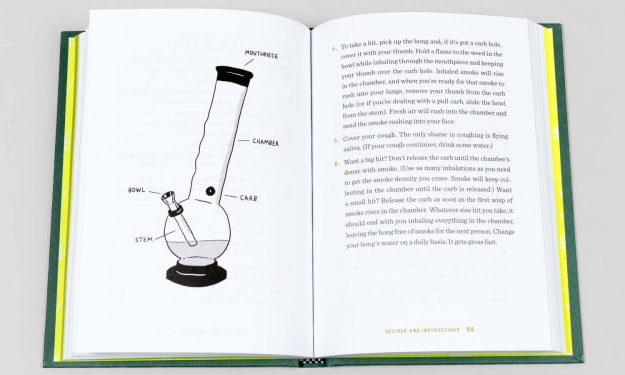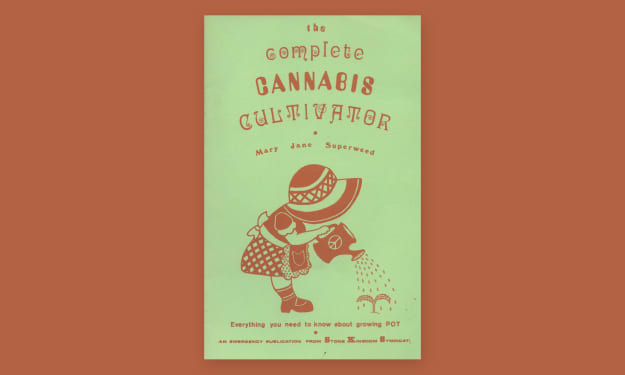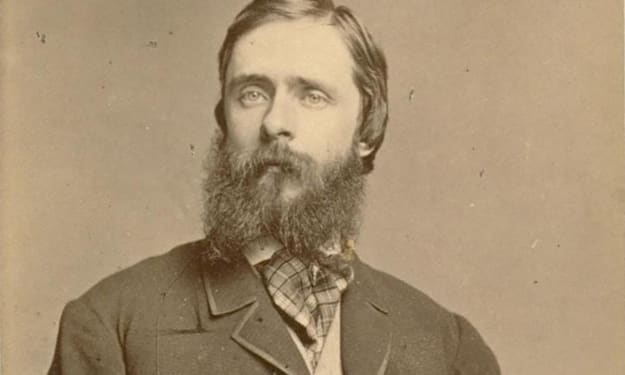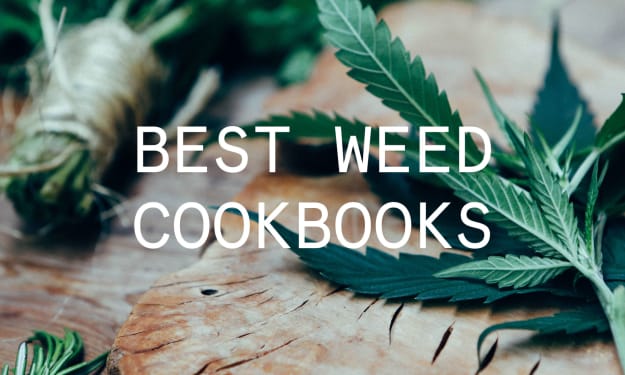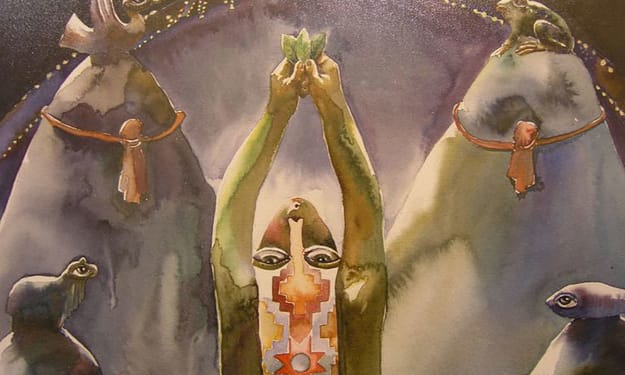book review
Book reviews on cannabis, marijuana, and pot related literature, cookbooks, and material.


Must-Read Books On Growing Marijuana
Why should you bother investing in books on growing marijuana when much of the information is widely available online? Can't you just watch a bunch of YouTube videos and get much of the same information? Well, yes and no, but the real value of a physical book is that it's more reliable, better researched, and has been properly vetted—generally speaking.
Hydro WilsonPublished 6 years ago in PotentTrippy Books to Expand Your Mind
There's nothing quite as satisfying as reading (or just flipping through) a good book when you've just smoked a joint, done some ketamine, or possibly had one too many martinis to drink. It's hard to explain why, too.
Ossiana TepfenhartPublished 7 years ago in Potent

Best Books for Stoners to Read
Whether mainstream media wants to admit it or not, marijuana and books go together beautifully. Many major authors wrote bestsellers while smoking the herb, and some even managed to make a reputation for themselves as writers because of their ganja habit.
Ossiana TepfenhartPublished 7 years ago in Potent- Top Story - May 2017


This 1969 Pamphlet is the Ultimate Guide to Growing Cannabis
Back in the 1960s and 1970s, cannabis cultivation was as taboo as it got. No respected book publisher would talk about how to grow marijuana - let alone describe the steps in detail. For the most part, it was one of those topics that was never broached except in closely guarded circles, in hushed voices.
Parag PatelPublished 7 years ago in Potent 

Books Written by Stoned Authors
Many writers are known to be alcoholics, others drug addicts. So it only makes sense that quite a few are also potheads. But, there are tons of no-name writers who wrote their books while high.
Anthony GramugliaPublished 7 years ago in Potent

What Are Cannabis Tinctures?
Even before the ancient Greek Pedanius Dioscorides penned his famous precursor to modern pharmacopoeias, "De Materia Medica,” herbalists and traditional apothecaries have been concentrating the healing power of herbs into tincture form. These concoctions are meant for efficient herbal medicating. Cannabis tinctures are not new; until 1937, tinctures were the most common form of marijuana-based medicines. A few drops can be taken sublingually (under the tongue) where the medicine is absorbed by the arterial system then rushed to the brain and body.
Johnny HashPublished 7 years ago in Potent

Who Was Fitz Hugh Ludlow?
I was never particularly interested in 19th-century literature. There were so many things our English teachers didn't tell us, especially when it came to the counterculture underground books of the Victorian era. They never mentioned that Charles Dickens, for instance, wrote his last novel stoned. Several key scenes in The Mystery of Edwin Drood were set in an opium den and hash lounge. Or they'd ramble on and on about John Greenleaf Whittier's "Snowbound," never mentioning his interesting little poem "The Haschich." Sometimes we'd get maybe an hour of English class devoted to an excerpt from Thomas De Quincey's Confessions of an English Opium Eater (1822), because it was the first great English drug tale and influenced all the Romantic writers. But we never heard about, America's first great drug writer, Fitz Hugh Ludlow.
Frank WhitePublished 7 years ago in Potent- Top Story - March 2017


Literature and Marijuana: Counter-Culture History Through the Years
America's literary counter-culture movement began after the Mexican Revolution in 1910, when those to our South came northward, and, in turn, brought their natural relaxant with them: marijuana. Granted, the counter-culture had begun to start over in Europe long before America joined in on the fun. James Joyce had already kicked off the modernist movement with Portrait of the Artist as a Young Man, a novel that deliberately broke every established rule of literature.
Anthony GramugliaPublished 7 years ago in Potent 

Best Weed Cookbooks
Bringing together cooking and marijuana consumption is not a new concept, but it is one that has been taken to a new level in recent years. Typical baked goods and gummies are not the only thing on the menu any more, and the green palette has been expanded to include infused oils, spices, whole meals, and preserves.


Who Was Allen Ginsberg?
As a poet, Allen Ginsberg was able to relate his feelings on being homosexual and a marijuana smoker in his poetry, achieving the status of an almost mystic figure. He had an intense spiritual life and tried to expedite whatever came to his head, and to explore what his mind wanted to pursue.
Wendy WeedlerPublished 7 years ago in Potent

Inca Ink From Mama Coca by Antonil
A first-rate book can also be a letdown when seeds of greatness sprout in the opening leaves only to wither before harvest. Mama Coca is the best on the subject since W. Golden Mortimer's turn-of-the-century Peru: History of Coca—and not just because it's the only full-length study since then. For the most part, the uninomial author anchors his meticulous scholarship with firsthand knowledge and suspicious common sense.




